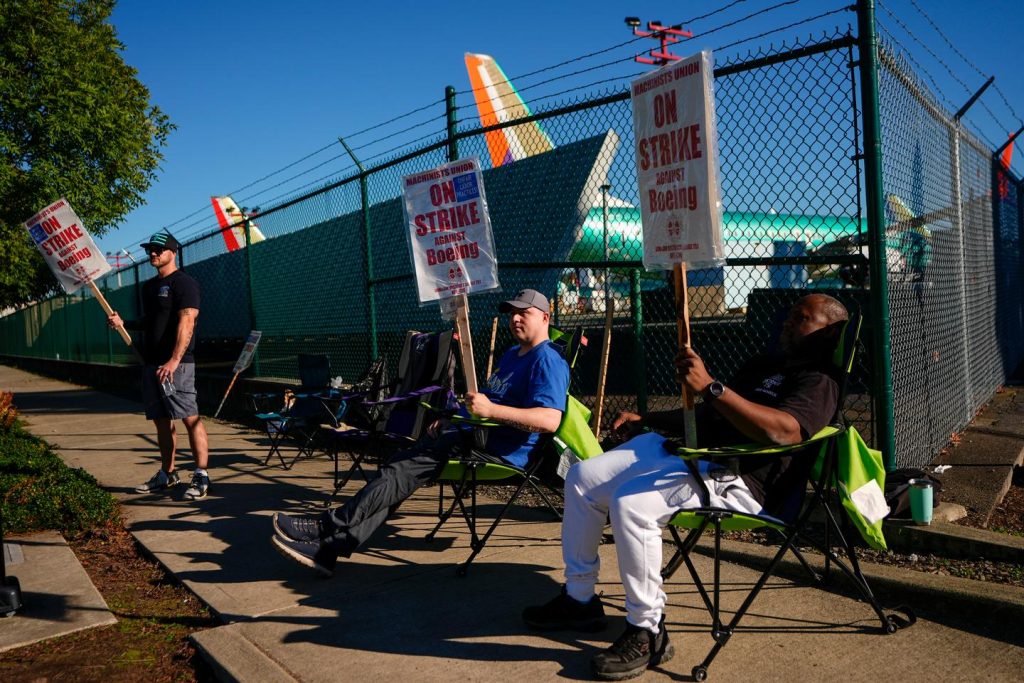Workers at Boeing on strike are protesting outside the company’s facilities in Renton, Washington, on September 24, 2024. This is the worst number since 2020, and it comes at a bad time for Vice President and Democratic presidential candidate Kamala Harris. In October, the United States only created 12,000 jobs while unemployment affects 7 million Americans, with a 4.1% unemployment rate (although it actually increased from 4.05% to 4.14% between September and October according to the Wall Street Journal). This lower-than-expected figure is attributed to the impact of Hurricane Helene and Milton in Florida and North Carolina, as well as the strike at Boeing since September 13, which led to many layoffs at the aerospace manufacturer and its subcontractors. Employment in the transportation manufacturing industry declined by 44,000 jobs, largely due to the strike, as reported by the Bureau of Labor Statistics.
Without the 40,000 jobs created in the public sector, the overall job creation figure would have been negative, which the Republicans immediately pointed out just four days before the presidential election. Job creations in August and September were also revised downwards to 78,000 (from 254,000) and 223,000 (from 254,000), respectively. The 12,000 new jobs figure confirms the slowing down of the economy, which is expected to reinforce the Federal Reserve’s intention to lower its benchmark interest rates by a quarter point on Wednesday, November 6, following a half-point decrease in September that brought rates down to 4.75%. The Federal Reserve’s monetary policy committee meeting is held during a particularly delicate period, on the day (Tuesday, November 5) and the day after (Wednesday, November 6) the presidential election. To maintain political neutrality, the bank is expected to stick to the planned course of action, regardless of any political or financial turbulence on Wednesday. Wall Street saw gains on Friday, November 1, driven by positive Amazon results.
Despite a healthy economy with annual growth reaching 2.8%, as reported on October 30, the Biden-Harris administration’s term has been clouded by the resurgence of inflation. Since the Democrats took office, prices have increased by 20%. Inflation, which dropped to 2.4% in September, had reached a record 9.1% in June 2022, leading to a decline in Americans’ purchasing power. The article highlights the impact of these economic indicators on the upcoming election, as well as the challenges faced by the current administration in managing economic stability and inflation levels. The complexity of economic factors and political considerations leading up to and following the presidential election demonstrates the interconnected nature of economic policy and political decision-making in the United States.


